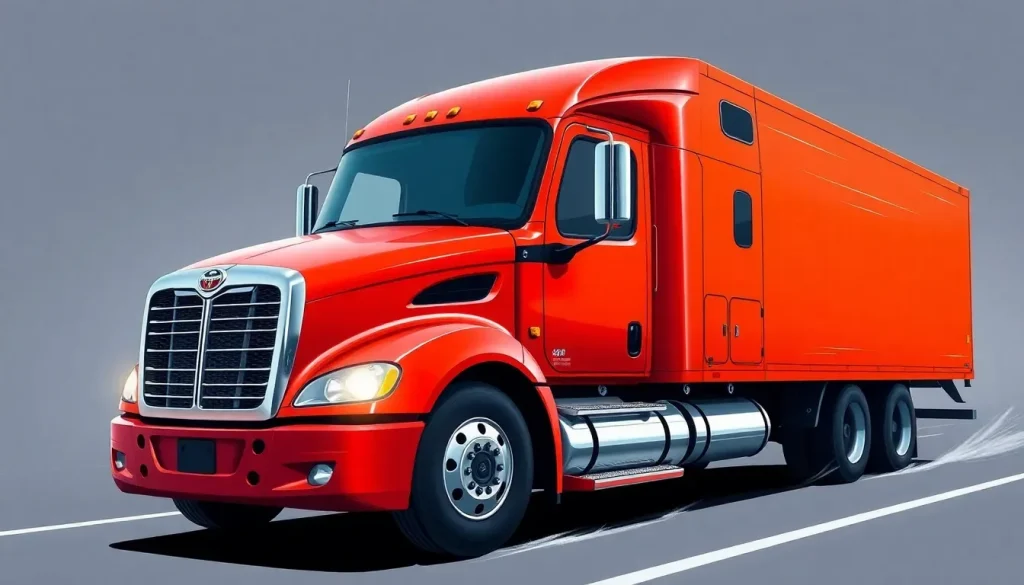Alberta closes five unsafe truck driver training schools and 13 carriers

In a significant move to enhance road safety and accountability within the trucking industry, Alberta has recently revoked licenses from five commercial driver training schools and shut down 13 trucking companies. This action follows a thorough investigation into unsafe practices, highlighting the urgent need for reform in driver training and carrier operations.
As incidents on highways have surged, including alarming bridge strikes by high-load trucks, state officials have taken decisive steps to address these issues. The Minister of Transportation and Economic Corridors, Devin Dreeshen, emphasized the necessity of this investigation, stating that the rash of accidents prompted the government to delve deeper into the state of the trucking industry.
Alberta's crackdown on unsafe practices
The investigation, conducted by the province’s Driver Training and Oversight Unit over a six-month period, uncovered a troubling pattern of fraudulent reporting and inadequate record-keeping. These practices allowed students to bypass essential training hours, both in classrooms and behind the wheel. Dreeshen noted that this type of fraud was a recurring theme throughout the investigation.
The repercussions of this investigation were substantial, leading to:
- 39 disciplinary letters issued.
- Over $100,000 in administrative penalties.
- Six corrective action plans implemented.
- 12 instructor licenses revoked.
- Four warning letters sent to driver examiners.
This decisive action is part of a broader initiative to ensure that truck drivers receive the training they need to operate safely. Dreeshen remarked on the importance of thorough oversight, indicating that these measures aim to protect both drivers and the public.
Targeting ‘chameleon’ carriers
Among the 13 companies shut down, seven were classified as “chameleon” carriers. These are companies that attempt to evade regulatory scrutiny by frequently changing their names, creating new business entities, or relocating operations across jurisdictions. Dreeshen stated that addressing the issue of chameleon carriers is crucial for maintaining industry integrity.
He explained, “It takes a lot of collaboration with other provincial ministries to ensure we catch these bad actors, because it ultimately just gives the trucking industry a bad name.” This collaborative approach is essential for effectively monitoring and addressing safety concerns across multiple levels of operation.
In response to these challenges, Alberta has ramped up engagement with driver training schools, hosting workshops aimed at elevating training standards and strengthening oversight mechanisms. These workshops are designed not only to improve compliance but also to enhance the overall quality of driver education.
Don MacDonald, operations manager at CCA Truck Driver Training and interim chairman of the Professional Truck Training Alliance of Canada, expressed optimism about these developments. He highlighted the importance of elevating training standards to that of a designated trade, ultimately seeking Red Seal recognition for truck drivers, which would significantly enhance both safety and professionalism within the sector.
Addressing labor issues in the trucking industry
In addition to the focus on training and safety, Dreeshen pointed out ongoing labor issues, particularly the misclassification of drivers as independent contractors rather than employees. This misclassification has significant implications for driver rights, benefits, and overall job security.
Dreeshen made it clear that he plans to advocate for these critical issues at the upcoming meeting of federal, provincial, and territorial transportation ministers. His firm stance on compliance is reflected in his message to operators: “Follow the rules.”
Despite these challenges, Dreeshen also recognized the efforts of operators who are meeting safety standards and regulations. “Albertans rely on truck drivers and the goods they deliver every day,” he noted, emphasizing the importance of viewing trucking as a rewarding career choice.
Raising standards through collaboration
The Alberta government has taken proactive steps to ensure that the trucking industry operates at the highest possible standards. This includes initiatives aimed at promoting collaboration between various stakeholders, including government bodies, training institutions, and trucking companies.
Some of the key strategies being implemented include:
- Regular audits of training schools to ensure compliance with safety standards.
- Enhanced communication channels between government and industry stakeholders.
- Development of a robust certification process for instructors and examiners.
- Increased public awareness campaigns about the importance of safe driving practices.
These strategies not only aim to improve safety but also to restore public confidence in the trucking industry. By emphasizing accountability and transparency, Alberta seeks to create an environment where drivers can take pride in their profession and the public can feel secure on the roads.
The future of trucking in Alberta
As Alberta moves forward with these initiatives, the hope is that the industry will see a positive transformation that prioritizes safety, professionalism, and integrity. Continuous monitoring and intervention will be essential to prevent any recurrence of unsafe practices.
Furthermore, the government’s commitment to enhancing training programs and ensuring that all operators meet stringent safety standards will play a pivotal role in shaping the future of trucking in the province.
For those interested in more insights into the challenges faced by Alberta's trucking industry, this informative video provides an overview of the evolving landscape of truck driver training:
In conclusion, the steps taken by Alberta to address training and operational deficiencies in the trucking industry reflect a growing commitment to safety and accountability. By fostering a culture of compliance and professional development, Alberta aims to ensure that its roads are safer for everyone.




Leave a Reply